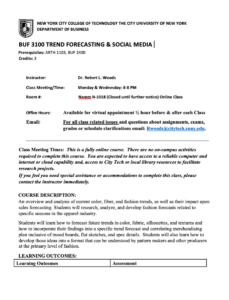How COVID-19 Has Affected Swimwear Sales
Abstract
In 2019, the novel virus Coronavirus came to light. While it affected Asia first, it then slowly made it’s way west. In 2020, it slowly took over and became a global pandemic. By Mid-March, most of the world was either on lockdown, or shut down to quarantine. Many businesses had to temporarily close, which also meant many factories had to close as well. With closed factories, not only are their laid off or jobless employees, but also a lack of merchandise, and left over product. A particular group that suffered was Swimwear. This paper will be about how Swimwear has been affected during the lockdowns, and how they are doing with the economy suffering.
When the year started, many companies were hopeful going into their new calendar year. As February hit the new quarter started, as well as the launching of resort wear for the season. However, when March rolled around, is when COVID-19 became a global pandemic. Many countries shut down their borders, started quarantine, started lockdown, even giving curfews out. With this, it also led to many jobs closing unless you were considered an “essential” business. As broad as that was, it led to many places struggling to keep open, and filling out paperwork to keep themselves and their employees afloat.
When COVID-19 hit, and there was global lockdowns, the Swimwear industry was one of the many who saw a rapid decline. Why was it that Swimwear was affected so much? Was it that no one was travelling? Or were their typical customers unable to afford it? Or, was it just that because many people were quarantining, that the customer just didn’t feel comfortable enough showing skin.
The problem was originally recognized in the early 2010’s. Coming from bat feces, the scientist Shi Zhengli had no further information, just knowing it could spread. (Time, 2020). Though, COVID-19 is not quite the same, it shares a 96.2% similarity to the virus that Zhengli discovered almost a decade previously. It continues to be unknown how exactly this virus spread, especially as quickly as it did. But once epidemic hit pandemic to the global standard, is when it became an actual problem every household is aware of.
How exactly did the novel virus COVID-19 become such a sensation to hurt retail? How did COVID-19 affect the Swimwear sales of 2020?
COVID-19 is an incredibly bad problem for the world to be having right now. It is a pandemic that is affecting the entire world, no matter where you live. From progressive, to unprogressive, this virus is affecting almost everyone on the planet. It is said to have originated in Wuhan, China, but that is all that is known. It is concerning, as it has hit pandemic levels, but there is no cure, nor a way to stop it. While social distancing and wearing a mask is advised, there is no fool proof way to be able to stop this, or to cure it. Vaccinations are being tested, but it is still all testing what may or may not work, especially given we do not know any long term effects. Not knowing any potential long term effects very much hurts the retail world, especially when it comes to a more niche market.
The average person is affected by this. No matter who you are, at one point you have shopped for swimwear. It is said this happens because of the Instagram Algorithm that is in place (Vox, 2019) but in general at some point in time someone has purchased a swimsuit around you. During these trying times, not everyone has the luxury of being able to travel, especially not considering the quarantines or lockdowns put in place. Though, in the retail market is it is only one thing that seems to be failing, it should be concerning. It may seem as if the average consumer is just not purchasing, but when it is looked at in depth, it is not just the one bikini or one cover up not being purchased. If the factories do not have any orders to be put in, then there is no need to have employees. If said employees lose their job, or a portion of their income, that is their livelihood they are losing as well. Whether it be paying rent, or having enough for groceries, it is something that is being taken away from them. In the United States, there is not much production being taken care of here as opposed to overseas, but if suddenly, the trade stops, the employment here, will also drop. Assuming that these factories American’s are purchasing are from China, the third largest good’s partner, it will greatly be affected. According to the Office of the United States Trade Representative, as of 2015 it is an estimated 911,000 jobs. (Office of the United States Trade Representative, n.d). This virus has affected almost everyone, whether it be the buyer, distributor, seller, sender, buyer, and brand.
One particular Australian brand, named Seafolly, has suffered greatly due to COVID-19. According to Powell (2020) In a statement, administrators for the company directly cited COVID-19 as the reason for its demise, saying the appointment had been made due to “the crippling financial impact of the COVID-19 pandemic”. This is just one example of a brand that was struggling financially because of the virus. The 45 year old company began to fail, and even directly blamed COVID-19 for it. Their failure led to the owners attempting to sell the company, so there would at least be some profit from it. In New York City alone, there are a countless amount of businesses that have had to close because of it. Both chain retailers and small businesses have had to either close or relocate.
Because of the pandemic, the swimwear industry began to fail. While it may seem as if bathing suits are just not being sold, there are so many more people that are behind this. The industry is not just filled with big box retailers, there are so many smaller businesses struggling to keep afloat. According to Carrera (2020) “The season will be hurt, first of all because the number of deaths will cast a shadow on the summer season, which is typically a joyful moment of the year,”. Summer is a time of excitement, but because the virus hit, and the restrictions, people can not live the lives they normally do. While they may be adjusting to a “new normal” it is not the same, and the purchasing habits will be different.
If there is no cure, or vaccine for the virus, this particular market will continue to fail. Although, not everyone is afraid of the virus or afraid or getting ill, it does not change the reality of the issue at hand. If numbers continue to fluctuate, and cases continue to rise up, there will be further restrictions. In New York City alone, Governor Andrew Cuomo has added 95% of the country to the restricted travel, and enforcing a 14 day quarantine if they enter the state from one of them. (Bloomberg, 2020). Less tourists shopping in major cities leads to either cut backs on jobs, or locations. Many companies might begin to downsize because it is just not profitable to continue having so many employees, or locations, when business is declining anyway.
There are quite a few possible solutions for swimwear companies beyond the inevitable downsizing or selling. Companies can start being more relatable to their target audience. This goes beyond just making skin tone friendly nudes, or extended sizing. Social media is now somewhere you can market and sell to the consumer directly. Letting them feel as if they have some sort of choice in what the company does can boost sales. For example, if a swimwear company wants to release a new collection, they can post polls on their Instagram stories to see what their followers want more. Whether it be a specific color scheme, or different kinds of fabrics (i.e. scuba, ribbing, or knitted), or what styles they would like to see (i.e. high waist, one piece, monokini). Companies can also focus more on what their consumers care about. This year in particular, different brands were canceled because of their lack of statement over the Black Lives Matters movement. The swimwear company named Frankie’s Bikinis, however, made sure to let their audience that they are listening and they do care. The CEO and founder Francesca Aiello made sure to participate in Blackout Tuesday, created a collection with Stonewall in which a portion of the sales were used for the LGBTQ+ community who are suffering because of COVID-19, and they recognized Juneteenth as a paid holiday for their employees. Showing empathy and that you are self aware with what is going on in the world and with your buyers will set you apart. And with that, you’ll have no problem spending money knowing it’s a company that in fact does care about you, and the community as well. A new approach on marketing the company would also work. Many brands are doing untouched photos, so it shows you how in reality the product will fit. Perhaps doing campaigns with those who aren’t models, those of all body types, or even doing Instagram competitions to find a new face of the brand. In this day and age, we are beginning to realize celebrities wealth has reached an all time high, while the average person is struggling. We don’t want another famous face, we want someone that looks like us and is just as normal.
What will no longer work for companies, is their silence. While it is an old saying that ignorance is bliss, a new saying is silence is compliance. The swimwear world in specific is already such a specific market, and with so much competition, there is that much more reason to be able to resonate with your consumers. Donating to causes, showing their support of movements. Many people do not have the extra income to be purchasing something they don’t necessarily need, so you will need to relate further and dig deeper. The person may not shop that day, but they’ll remember that the company advocates for something they are passionate about and it will make all the difference. Swimwear companies will also not be able to stick to the same standards they used to. Not everyone wears a sample size, and you do not want to exclude any potential customers simply because you chose to not create and XL in swim.
COVID-19 has not only affected the people who can catch the virus, but it has also hurt many brands. Swimwear in particular may not be doing well, whether it be travel restrictions or loss of income, but with a few changes, it is possible the market can be able to turn around.




